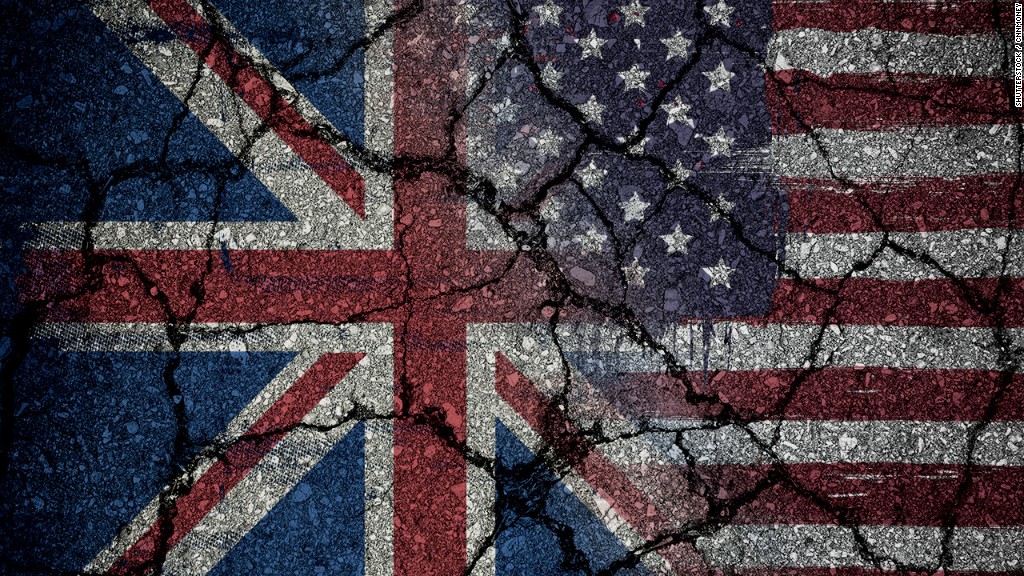
The number of business deals involving British companies has fallen of the cliff since the U.K. voted to leave the EU. And it was already pretty low in the run up to the vote.
Two big foreign-led deals targeting U.K. companies were announced on Wednesday, with the buyers getting a significant "Brexit discount" thanks to the recent fall in the value of the pound.
But data from research firm Dealogic show the number of deals announced after the referendum on June 23 has fallen 45% compared to the same period last year. The total value of deals announced since the referendum stood at $4.5 billion compared to the $9.1 billion at the same time last year, Dealogic said.
The post-Brexit fall comes after an already very weak first half of the year. While the number of deals targeting U.K. companies stayed roughly the same compared to the first half of 2015, the value of the deals plunged 58% to the lowest since 2011.
Experts say that the cheap pound could spark more interest from investors. "On the face of things, U.K. assets are at the moment cheap, and probably compared with the long term prospects for the U.K. economy, undervalued," said Nigel Driffield, professor of international business at Warwick Business School.
Related: Will Brexit cause a new merger mania or kill deals?
He said buyers looking for long term investments in relatively safe assets, such as commercial property, could find the U.K. attractive, especially since some U.K. funds have recently withdrawn from the sector.
AMC Entertainment, (AMC) the Chinese-owned American cinema chain, has bought London-based Odeon & UCI Cinemas Group in a transaction valued at approximately £921 million, the companies said on Wednesday. The combined company will be the world's largest movie theater operator.
In dollar terms, the deal comes with a hefty discount. It was worth $1.38 billion three weeks ago, on the day of the U.K. referendum. But after the fall in the value of the pound, the deal is now worth $1.2 billion.
The South African group Steinhoff International has agreed to buy British discount chain Poundland for nearly £600 million ($795 million). Steinhoff had first approached Poundland before the referendum in June. Since then, the dollar value of the transaction fell by over $100 million.
But Driffield said that while the cheap sterling makes U.K. assets look cheap, potential buyers will also need to think about the fall in real expected revenues. "In times of uncertainty -- and I think we can all agree we are living in one of those now -- the fall in real expected revenue dominates, and we see a decline in FDI," he said.
Related: How Theresa May can save U.K. from crisis
Experts at the M&A consultancy KPMG said half a dozen deals they were working on in the U.K. were put on hold in the aftermath of the vote. That's because nobody knows how and when the U.K. will actually leave the European Union. Its access to the single market will also have to be renegotiated.
There are even questions about whether the London Stock Exchange's planned merger with Germany's Deutsche Börse will go through. Shareholders in Deutsche Boerse will vote on the deal later this month.
